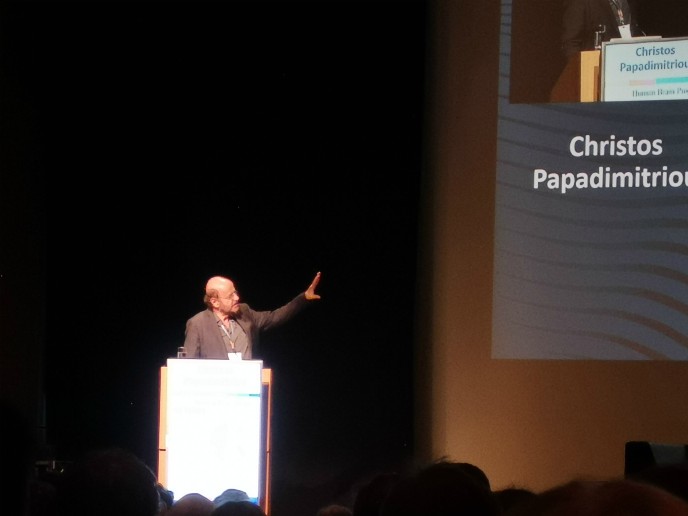Could language be the lens to the brain?
Unravelling the secrets to the human brain could provide the world with invaluable insights into humanity and change the way brain disorders are diagnosed and treated. However, gaining such an understanding is one of the greatest scientific challenges of today. The Human Brain Project (HBP), a 10-year EU initiative in the field of neuroscience, is meeting this challenge head on by designing and building a research infrastructure to help advance neuroscience, medicine and computing. As part of this initiative, the HBP Summit & Open Day, in its 7th year running, brought together scientists and professionals in Athens, Greece, to highlight the efforts being made in the field. Summit keynote speaker Papadimitriou, one of the world’s leading computer science theorists and a professor at Columbia University’s Department of Computer Science in the United States, shared his thoughts on language, brain and computation.
The role of language
“I hope you realise that what is happening now is remarkable and beyond explanation. I am blurting out, at you, syllables at about four every second,” the keynote speaker begins his lecture. He goes on to explain that the syllables are put into words and then sentences are constructed. “This happens at four hertz. You are scientists, so you know this is not normal.” As a computer scientist, Papadimitriou is using his knowledge of computers to better understand the brain. He notes that while there are huge advances in computer applications and medical discoveries, the human brain is still a mystery and that there is a huge gap between what we understand about this remarkable organ and what we want to know – for example, how the mind emerges from the brain. It is his belief that language is a lens to the brain and can provide the world with a valuable opportunity to better understand it. He emphasises that cognitive functions evolved with the animal, however when it comes to language, it is the only cognitive function that evolved after the animal. “Language evolved over the last two thousand generations and during these two thousand generations our brains have been the same. So, language adapted to the brain.” Therefore, by studying language – a mirror of the brain – society can unearth its secrets. Papadimitriou notes that over the last 5 years, fantastic experiments such as those by Poeppel in 2016, Frankland and Greene in 2015, and Zaccarella and Friederici in 2015 have taken place and given the world a better understanding of the language of the brain – ultimately helping to fill the knowledge gap on how the brain generates the mind and how neurons and synapses, the junctions where neurons pass on their messages to other neurons, create the brain. He further believes that assemblies and their operations may be one productive path to thinking about computation in the brain. In summarising his talk, he notes: “The study of the brain is fascinating and bottomless.” Therefore, through the study of language, we just might be one step closer to learning more about the human brain and its unsolved mysteries.
Countries
Greece



